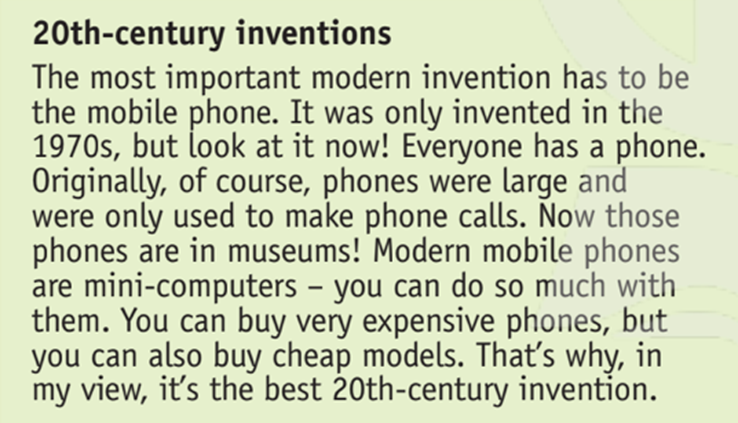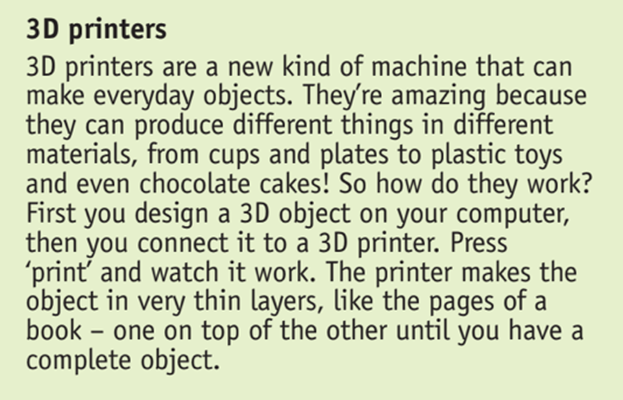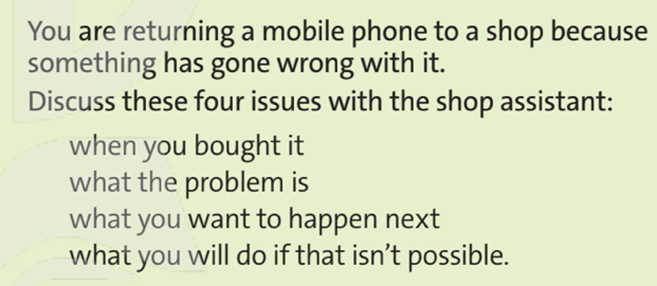Câu hỏi:
19/07/2024 139
Listen to the text. Are the sentences true or false? Write T or F. (Lắng nghe. Các câu sau đúng hay sai? Viết T hoặc F)
1. Galileo invented the telescope.
2. Galileo immediatedly used the telescope to study space.
3. The United States sent the first person into space.
4. There was an astronaut in Vostok 1.
5. The speadker thinks it’s useful to land on Mars.
6. The speaker is mainly describing the advantages of space exhibition.
Listen to the text. Are the sentences true or false? Write T or F. (Lắng nghe. Các câu sau đúng hay sai? Viết T hoặc F)
1. Galileo invented the telescope.
2. Galileo immediatedly used the telescope to study space.
3. The United States sent the first person into space.
4. There was an astronaut in Vostok 1.
5. The speadker thinks it’s useful to land on Mars.
6. The speaker is mainly describing the advantages of space exhibition.
Trả lời:
 Giải bởi Vietjack
Giải bởi Vietjack
Hướng dẫn dịch:
1. Galileo đã phát minh ra kính thiên văn.
2. Galileo đã ngay lập tức sử dụng kính thiên văn để nghiên cứu không gian.
3. Hoa Kỳ cử người đầu tiên vào vũ trụ.
4. Có một phi hành gia trong Vostok 1.
5. Speadker cho rằng hạ cánh trên sao Hỏa rất hữu ích.
6. Người nói chủ yếu mô tả những ưu điểm của triển lãm không gian.
Hướng dẫn dịch:
1. Galileo đã phát minh ra kính thiên văn.
2. Galileo đã ngay lập tức sử dụng kính thiên văn để nghiên cứu không gian.
3. Hoa Kỳ cử người đầu tiên vào vũ trụ.
4. Có một phi hành gia trong Vostok 1.
5. Speadker cho rằng hạ cánh trên sao Hỏa rất hữu ích.
6. Người nói chủ yếu mô tả những ưu điểm của triển lãm không gian.
CÂU HỎI HOT CÙNG CHỦ ĐỀ
Câu 1:
Read the text. Circle the correct option (a-d). (Đọc đoạn văn. Khoanh vào đáp án đúng a-d)

1. What do the programme makers want? (Những người làm chương trình muốn gì?)
a. new inventors (nhà sáng chế mới)
b. experienced film makers (một người làm phim có kinh nghiệm)
c. young TV presenters (người dẫn chương trình trẻ tuổi)
d. young actors (diễn viên trẻ)

2. What is the purposes of the text? (Mục đích của đoạn văn là gì?)
a. to advertise mobile phones (quảng cáo điện thoại di động)
b. to invite people to a museum exhibition (mời mọi người đến triển lãm bảo tàng)
c. to give an opinion about an invention (nêu quan điểm về một phát minh)
d. to advise people to avoid cheap phones (khuyên mọi người không nên dùng điện thoại rẻ tiền)

3. What is the writer of the text doing? (Người viết đang làm gì?)
a. giving an idea about the future of printers (đưa ra ý tưởng về tương lai của máy in)
b. describing an invention (miêu tả một phát minh)
c. giving a short history of an object (tóm tắt lịch sử của một thiết bị)
d. explaining different inventions (giải thích các phát minh khác nhau)
Read the text. Circle the correct option (a-d). (Đọc đoạn văn. Khoanh vào đáp án đúng a-d)

1. What do the programme makers want? (Những người làm chương trình muốn gì?)
a. new inventors (nhà sáng chế mới)
b. experienced film makers (một người làm phim có kinh nghiệm)
c. young TV presenters (người dẫn chương trình trẻ tuổi)
d. young actors (diễn viên trẻ)

2. What is the purposes of the text? (Mục đích của đoạn văn là gì?)
a. to advertise mobile phones (quảng cáo điện thoại di động)
b. to invite people to a museum exhibition (mời mọi người đến triển lãm bảo tàng)
c. to give an opinion about an invention (nêu quan điểm về một phát minh)
d. to advise people to avoid cheap phones (khuyên mọi người không nên dùng điện thoại rẻ tiền)

3. What is the writer of the text doing? (Người viết đang làm gì?)
a. giving an idea about the future of printers (đưa ra ý tưởng về tương lai của máy in)
b. describing an invention (miêu tả một phát minh)
c. giving a short history of an object (tóm tắt lịch sử của một thiết bị)
d. explaining different inventions (giải thích các phát minh khác nhau)
Câu 2:
Work in pairs and do the task below. (Làm việc theo nhóm và làm bài tập dưới đây)

Work in pairs and do the task below. (Làm việc theo nhóm và làm bài tập dưới đây)

Câu 3:
Read the task below and write the letter. (Đọc đề bài và viết một lá thứ)

Read the task below and write the letter. (Đọc đề bài và viết một lá thứ)



